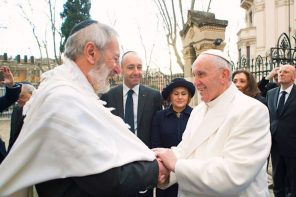There are rare persons who, beyond their many professional accomplishments, are able to rouse sincere love and appreciation at the deepest human level. This person’s very presence embodies a seemingly paradoxical gift; their regality involves the ways they make people feel more important while allowing themselves to seem less important. This is why, in part, from that point forward the mere mention of their name evokes a childlike smile and memories of an old beloved friend.
To be sure, this sort of nobility transcends both aristocratic arrogance and class conceit. Rather it is derived from humble commitment to serving others, reminding us all of our better human potential. And such a magisterial manner—to remix womanist theologian Katie Cannon—is demonstrated by an invisible yet tangible dignity, quiet yet powerful grace, and an unshouted though heart-thumping courage.
This defines the towering life and lasting legacy of Rev. Dr. Ella P. Mitchell. She was a natural queen whose only pomp and circumstance was her distinguished life as a minister of the gospel, devoted wife, loving mother, and committed educator.
Ella Pearson began singing and preaching in her father’s congregation as a very young girl in Charleston, South Carolina. Her experience in the church was atypical of an African American woman. She had never heard a woman preach, and even sensed what she later described as an “undercurrent of quiet opposition” from her own mother. Yet her father, a trained Presbyterian minister, encouraged his daughter on the piano and in the pulpit.
At Talladega College she was the first student to major in religion under the tutelage of Joseph W. Nicholson, coauthor of the 1933 text The Negro’s Church with Benjamin Elijah Mays. Later she was taught directly by the greatest theologians of the 20th century, Paul Tillich and Reinhold Niebuhr, as one of only six African Americans at Union Theological Seminary in the 1940s.
Union provided Ella Pearson with more than a top-notch education. It introduced her to the man whom she would spend the next sixty-four years of her life. As a couple, a veritable tag-team of theological education, Ella and Henry Mitchell made an indelible impact on the academic study of religion as architects of what is now known as black church studies. Thousands of seminarians, clergy, and laypersons have feasted off their collective wisdom and have been transformed by their spiritual and intellectual insight.
Some of have kindly referred to Rev. Ella Mitchell as the dean of black women preachers. This moniker is too limited in scope and modest in terms of her immense influence. Though she began her career in the 1940’s directing choirs in the Bay area of California, her status as an educator cannot be reduced to her role as trailblazer for African American women. Her six-decade career includes teaching Christian education at the Berkeley Baptist Divinity School (now American Baptist Seminary of the West), Colgate Rochester Divinity School, the inaugural dean of Sister’s Chapel at Spelman College and professor of homiletics at Interdenominational Theological Seminary in Atlanta and the D.Min program at United Theological Seminary in Dayton, Ohio.
Sure, she introduced us to Those Preaching Women. But she, along with her partner Henry, also introduced the world to the aural vivacity and theological sophistication of the black spoken word tradition that extends back to the West African griot.
And, more importantly, she helped to open the minds (and improve the preaching) of scores of male clergy who claimed the pulpit as their gendered birthright. Whether in Oakland, Atlanta or Russia she reached beyond the African American community and across gender lines to teach what W.E.B. DuBois suggested over a hundred years ago, “The black preacher is the most unique personality developed by the Negro on American soil.” Rev. Ella P. Mitchell did this like none other.
May her unmistakable Christian witness live on in the lives of those blessed by her memory!




